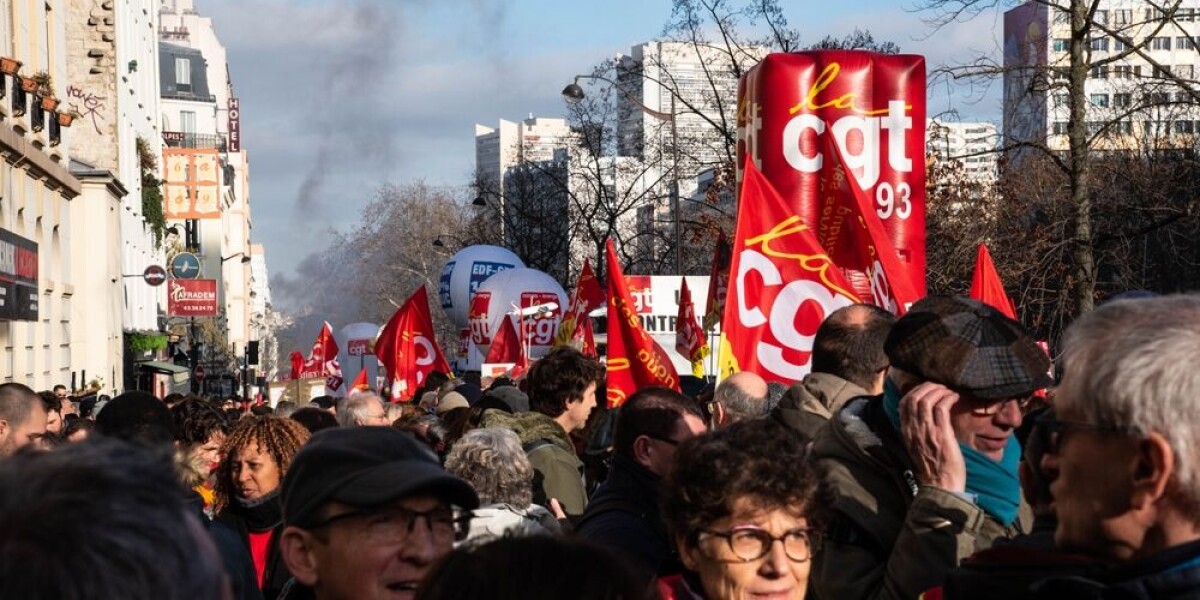
Why tens of thousands of people in france protested on may 1
- Select a language for the TTS:
- UK English Female
- UK English Male
- US English Female
- US English Male
- Australian Female
- Australian Male
- Language selected: (auto detect) - EN
Play all audios:

THE DEMONSTRATIONS SAW CLASHES WITH POLICE AND SEVERAL OFFICERS INJURED DO YOU RECEIVE THE CONNEXION'S FREE WEEKDAY NEWSLETTER? Sign up here Marches and protests were held across France
yesterday (May 1) with thousands of people taking to the streets to defend worker’s rights. Despite the heavy rain across most of the country, organisers and unions claim that around
200,000 people joined the action. The Interior Ministry, which uses a different and specific counting method, says the figure was around 121,000. This is lower than the number in 2023 when
pension reforms spurned more to protest. Last year, the Interior Ministry said 782,000 people marched on that day, whereas the unions claimed more than 2 million were on the streets. The
main march was is Paris but there were also protests and marches across all of France’s major towns and cities including Lyon, Marseille and Toulouse. Read more: How do you know how many
people really attended a protest in France? WHY ARE MARCHES HELD ON THIS DAY? May 1, known as the Fête du travail in France, is traditionally a day where unions organise marches across
France. Read more: Lily of the valley and workers’ rights: May 1 is special day in France Despite the anomalies in recent years, most notably due to Covid and the pension reforms of 2023
(which was the focus of protests last year), May 1 has now seemingly returned to its role as a day for workers to celebrate their rights. It is also a day for them to ‘defend’ the rights won
through the labour movements of the 19th and 20th centuries, such as the eight-hour work day, weekend rest and paid holiday. On May 1, almost all shops and places of work are closed except
for essential services. It is the only day where an employer cannot force an employee to work, which can happen on other bank holidays. Other groups also use the day to march for their
rights, including migrant workers and pro-independence parties for some of France’s overseas territories. WHAT WAS FOCUS OF THIS YEAR’S MARCHES? This year, unions focused on the issue of pay
rises in the face of inflation. Smaller offshoots revolved around the 2024 Olympic Games – set to be held in Paris – and the remuneration for workers indirectly involved in the games.
Binmen in Paris announced strike action that would last throughout the Games, and Parisian rail workers announced strike action in May, over a lack of Olympic bonuses. Other protestors
marched in support of Gaza, as well as over environmental issues. POLICE OFFICERS INJURED Several police officers were reported to have been injured during yesterday’s marches, including 13
in Paris. In Toulouse, three officers were ‘seriously injured’ and hospitalised after being attacked by protestors when they became isolated from their unit at around midday along the route
of the march. “They have bruises on their heads and all over their bodies,” an unnamed police source told La Dépêche. “[The officers] have also been affected psychologically. They never
imagined that they would be subjected to such a relentless assault,” said Lionel Ricaud, secretary of the police union in the Haute-Garonne department. The three are receiving care in the
hospital, and an inquiry into the incident has been opened.
